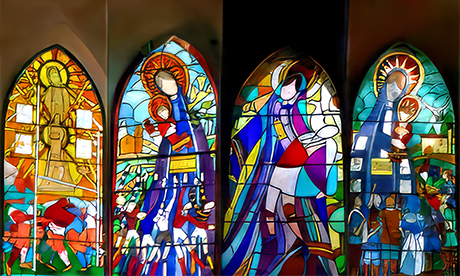Fr Antony Sumich, a New Zealand priest and former international rugby player and coach, has spoken candidly about the profound impact of rugby on his spiritual journey.
A member of the Priestly Fraternity of Saint Peter, Sumich has had a dual role as a club player in New Zealand and the coach of Croatia’s national rugby team.
“Rugby instils a strong sense of self-discipline and collective responsibility, both of which are invaluable in spiritual growth,” Sumich told The Pillar.
“As society moves away from agrarian lifestyles, men need an outlet for their physical energy. Rugby, an amateur sport known for its selflessness, offers an excellent platform for character development,” he added.
Sumich, a New Zealander with Croatian heritage, sees no conflict between his faith and the sport.
“In Auckland, where I reside, the high school rugby competition is fiercely competitive. Out of 16 teams, eight are from Catholic boys’ schools,” he said.
Across New Zealand, 24 towns have Catholic rugby clubs known as “Marist clubs,” founded by alumni of Marist Brothers schools.
Praying to win
While seeing no conflict between his faith and sport, Sumich cautions against praying for a team’s victory, emphasising that the sport should complement, not compete with, one’s faith.
“You don’t pray to God for something worldly, ever, and God isn’t listening to prayers like that,” he said.
“You’ve always got to keep the right balance as to what prayer is.
“It is primarily us thanking God, loving God, and honouring God, and one of the last things we do is we petition God for those things that are good for our own salvation, God’s will being done, and the salvation of the world.”
The intersection of Christianity and rugby is not unique to Sumich.
When questioned about reconciling his faith with the sport’s aggressive nature, Christian and former All Black great Michael Jones, who controversially did not play rugby on Sundays, quipped, “It is better to give than to receive.”
Catholic chapel in Bordeaux, France
The connection between rugby and Faith is not just a New Zealand thing.
In a quaint corner of Larrivière-Saint-Savin, France, the intertwining of rugby and spirituality is epitomised by La Chapelle Notre Dame Du Rugby.
An hour’s drive from the Bay of Biscay, this medieval chapel is adorned with stained-glass windows depicting rugby scenes.
Inside the church are stained glass windows of a scrum, another of Mary holding Jesus in his arms, while Jesus prepares to throw the rugby ball into the lineout.
There’s also another of Mary cradling an injured player in her arms.
Not leaving it with stained glass imagery, old rugby boots dangle by their laces next to the altar and along the walls there is proof that a Who’s Who of the world of rugby through the decades have come here.
There are photos and newspaper articles of players displayed alongside jerseys worn by the stars of the past, such as Serge Blanco or Fabien Pelous with simple messages of support for the volunteers who look after the chapel.
Community with a cause
The chapel’s significance to the rugby community dates back to a tragic 1964 incident when three young players from the local Dax club lost their lives in a car accident.
The community was devastated, but local priest Michel Devert saw an opportunity for healing.
He rallied the community around the idea of reviving the dilapidated chapel as a memorial for the young players and a spiritual hub for the global rugby community.
Today, the La Chapelle Notre Dame Du Rugby stands beautifully restored, thanks partly to a dedicated group known as the Friends of Notre Dame.
This committee has been instrumental in raising funds and soliciting rugby memorabilia from players worldwide.
The walls of the chapel are now adorned with a myriad of mementoes, turning it into a living museum of rugby history and a symbol of the sport’s unique ability to foster community, discipline and character.
